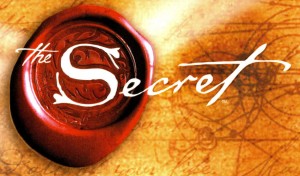Lost In Myth: How to Use the Myth of Time Travel In Real Life
 There seems to be a pattern that determines when Locke and the gang are jumping in time on Lost. Whether it’s Richard Alpert telling Locke what to do when he next sees him, or Faraday telling Desmond to find his mother in the future, or Locke telling Alpert to seek him out in a few years once he’s born. So far, the jumps occur whenever a character is talking to another character about events from a different time. Perhaps fate is preventing the characters from knowing something they shouldn’t be privy too or maybe it’s time’s way of course correcting, but I believe there is a deeper reason why the time jumps are happening at that exact moment. And it relates to wisdom we can use in our real lives.
There seems to be a pattern that determines when Locke and the gang are jumping in time on Lost. Whether it’s Richard Alpert telling Locke what to do when he next sees him, or Faraday telling Desmond to find his mother in the future, or Locke telling Alpert to seek him out in a few years once he’s born. So far, the jumps occur whenever a character is talking to another character about events from a different time. Perhaps fate is preventing the characters from knowing something they shouldn’t be privy too or maybe it’s time’s way of course correcting, but I believe there is a deeper reason why the time jumps are happening at that exact moment. And it relates to wisdom we can use in our real lives.
Last week, I discussed our notion of time travel from the media and also how science may be getting closer to actually achieving it—the art and science of time travel, so to speak. Now (now being the moment you are reading this, which, is my future, your present, and…well, now it’s your past) I’d like to discuss the spirituality of time travel and how you can begin using it to improve your life.
Just to review a bit, I mentioned that many quantum physicists believe that there are an infinite number of timelines with an infinite combination of scenarios, and they’re all happening right at this instant. Now. That is all there is. The past, the future—all illusions. The only reality is right now. Everything that ever has happened, will happen, or could happen is happening right now. While this seems kind of hard to grasp, let’s look to our friend “metaphor” to help us out.
Think of a video game disc. Every possible combination of events that could happen, all exist on that disc. The main character’s infinite lives—some in which he is successful at completing his mission and many more where he (she, it) is not—all exist in one moment on the disc. And while each of these lives contains millions of possible event combinations, there is a certain path (which can translate in our world as “fate”) that the game play seems to lead the character on. When he steps too far from the path he is nudged back on, or he dies. Sometimes, the character must face obstacles that enable him to grow so that he will be able to accomplish his next mission (just like in our lives).
 From the perspective of the character, he is creating his every moment. What he has already created exists in his past and what he has yet to create exists in his future. If the character dies and we play again, he is not aware of his last game. All that is real to him is his current life. Only we—who are outside of the illusionary game—know that the character has infinite lives and has played them before. We know that the character is not really creating anything, but making choices about various options that have been set in code. As the character’s brain, so to speak, we have the freedom of choice to make a variety of decisions during its game play. We can have it face its enemy, run away, gather support, etc. But we can’t have it do anything that isn’t written into the program. We can’t make it fly, if it’s not a flying character, for example.
From the perspective of the character, he is creating his every moment. What he has already created exists in his past and what he has yet to create exists in his future. If the character dies and we play again, he is not aware of his last game. All that is real to him is his current life. Only we—who are outside of the illusionary game—know that the character has infinite lives and has played them before. We know that the character is not really creating anything, but making choices about various options that have been set in code. As the character’s brain, so to speak, we have the freedom of choice to make a variety of decisions during its game play. We can have it face its enemy, run away, gather support, etc. But we can’t have it do anything that isn’t written into the program. We can’t make it fly, if it’s not a flying character, for example.
I’m not saying that the world we live in is actually a videogame, or even a program like The Matrix, but the truth behind this mythology is, I believe, very close to how our world really works. And now, science is starting to prove it. Science is starting to see that there are an infinite number of timelines that exist, and that the ones we notice, or think about, are the ones we leap into. Well, technically, science is only seeing this on a subatomic level so far. But guess what our world is made up of? Yep, subatomic particles. So many scientists have theorized that our world works similarly.
 So, how does any of this have to do with the time travel on Lost? Simple. Just like as may be the case with our world, Lost is demonstrating that multiple timelines exist simultaneously. And in order to leap into them, one of the characters has to think about or discuss another one of these times. “In the future you have to…” POOF! You just went into the timeline about the future because that’s what you were thinking about.
So, how does any of this have to do with the time travel on Lost? Simple. Just like as may be the case with our world, Lost is demonstrating that multiple timelines exist simultaneously. And in order to leap into them, one of the characters has to think about or discuss another one of these times. “In the future you have to…” POOF! You just went into the timeline about the future because that’s what you were thinking about.
 Now in our world, you aren’t going to leap into the future whenever you think about it. But the scenarios you tend to think about just might be in the timeline you enter into. So if you are always complaining and thinking about negative things, you will likely move into the timeline of your life where the things you are complaining about are happening. If you have a positive outlook and tend to look on the bright side of things, then that is the timeline you will head into. In other words, your thoughts are attracting you to the timeline where what you are thinking about is occurring. It’s called The Law of Attraction and it’s the principle that the very popular book/movie The Secret is based on. Not surprisingly, Lost has specifically illustrated this very principle at least a couple of times on the show. I plan on discussing which episodes they were and how they teach us to use the principle, but it will have to wait for another column to be posted some time in the future…well, depending on when you’re reading this.
Now in our world, you aren’t going to leap into the future whenever you think about it. But the scenarios you tend to think about just might be in the timeline you enter into. So if you are always complaining and thinking about negative things, you will likely move into the timeline of your life where the things you are complaining about are happening. If you have a positive outlook and tend to look on the bright side of things, then that is the timeline you will head into. In other words, your thoughts are attracting you to the timeline where what you are thinking about is occurring. It’s called The Law of Attraction and it’s the principle that the very popular book/movie The Secret is based on. Not surprisingly, Lost has specifically illustrated this very principle at least a couple of times on the show. I plan on discussing which episodes they were and how they teach us to use the principle, but it will have to wait for another column to be posted some time in the future…well, depending on when you’re reading this.
See you in another life, brothers and sisters!
Marc Oromaner is a New York City writer whose new book, The Myth of Lost offers a simple solution to Lost and how it provides hidden insight into the mysteries of life. He can be contacted in the discussion section of The Myth of Lost Facebook page.
The Myth of Lost is available on Amazon and barnesandnoble.com.



One Response Leave a comment